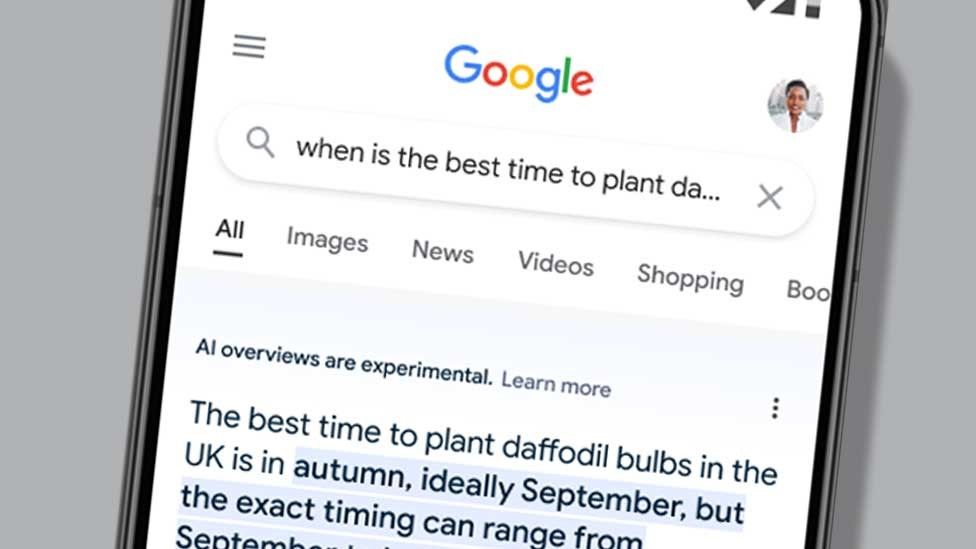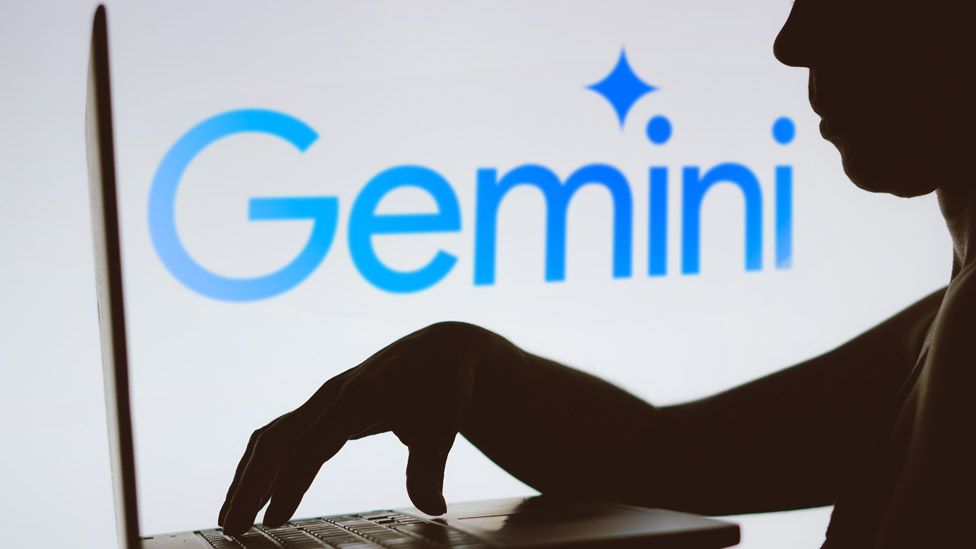Google using AI to create search answers in UK trial

Google has begun trialling search answers written by artificial intelligence (AI) in the UK, after the feature was tested in the US last year.
Initially only a small proportion of logged-in UK users will see an AI-generated “overview” at the top of some search results.
While Google is the most popular search engine, Microsoft’s rival Bing already integrates its Copilot AI.
But some publishers worry AI answers may reduce visits to their sites.
They fear longer chatbot-style responses will satisfy users’ curiosity without having to visit their websites, while AI answers will also contain fewer links and ads.
The “Search Generative Experience” – as Google dubs the feature – has been available for nearly a year in the US, but only to users who signed up via Google Labs.
It said the UK experiment will involve a “small slice” of UK search traffic, selected from logged-in users.
It comes as a front-page report in the Financial Times suggested that the firm was considering offering subscriptions for some premium AI search features in the future.
Google denied it was “working on or considering an ad-free search experience”.
Hema Budaraju, who helps drive Google’s generative AI efforts in search, told the BBC its new search results will still display links and ads.
She said it was a “priority” to continue to send traffic to creators, and claimed AI-powered search results were “actually showing more links to a wider range of sources”.
The “proof was in the pudding”, she said, adding that so far users were clicking on an increased range of sources too.
Writing on the wall
The AI-generated “overview” will be shown only in response to certain queries, where current trials have suggested they were helpful.
Ms Budaraju said a search for “how to get marks off painted walls” is one example that people have found useful.
But Google is aware of the risk, common to AI systems, that they can sometimes generate content that is harmful, offensive, display racial or gender bias, or factually wrong.
Ms Budaraju said the tech giant wanted to maintain “information quality”, and it would “put in a lot of care and attention to do this in a responsible way”.
As a result, she said Google chose to make answers less fluent and more constrained, focusing instead on accuracy.
For example, it is not generating AI answers to all queries, particularly where there aren’t sufficient high quality sources of information.
Users can send feedback if they encounter problems with the results – and Google is clear this is an experiment.
“We will find issues of bias and safety,” she said, “but the commitment is to find [these] and then invest in making it better”.
The firm says US users have responded positively so far, but if the trial is successful and AI generated search answers are eventually used by billions of people, that may bring further challenges.
For example, researchers have pointed to the large amounts of electricity required to power the computing that powers big AI systems.
That is energy use that comes at an environmental price.
Related Topics
- Artificial intelligence
-
Google looks to AI paywall option, claims report
-
20 hours ago

-
-
Why Google’s ‘woke’ AI problem won’t be an easy fix
-
28 February

-
Published at Thu, 04 Apr 2024 13:30:29 +0000
